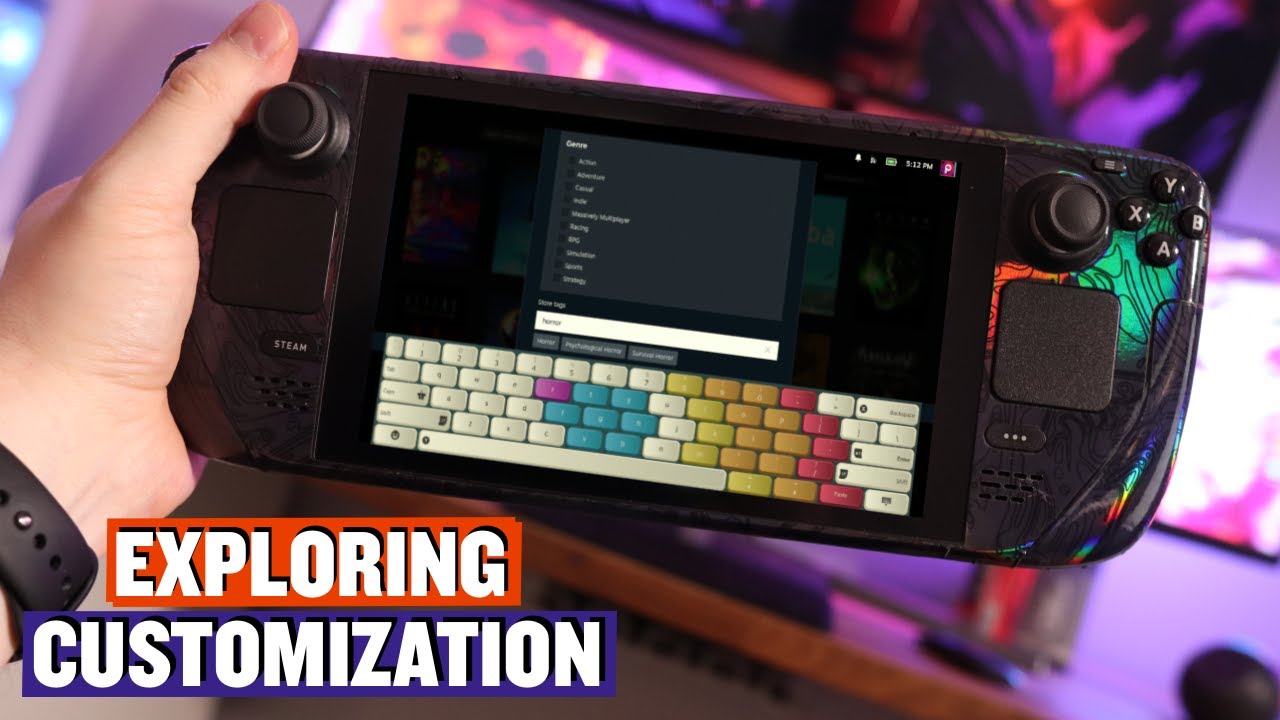Gaming Handheld Revolution: Microsoft Enhances Input for Portable Devices
In the world of portable gaming, competition is heating up as companies like ROG and Lenovo roll out devices designed to cater to gamers on the go. With the Steam Deck leading the charge, other manufacturers are eager to capture their share of the handheld market, all while contending with the complexities of Windows 11. Yet, in a surprising twist, Microsoft is stepping in to improve the user experience with a new feature aimed at making text input far more efficient for these compact gaming consoles.
Portable gaming consoles taking center stage in the gaming industry.
The Rise of the Handheld
Gaming handhelds have become increasingly popular, transforming how we engage with games outside our traditional setups. Devices like the ROG Ally and Lenovo Legion Go bring PC gaming into our hands, proving that high-quality gameplay doesn’t have to be tethered to a desk. However, the implementation of Windows 11 on these systems often leads to hiccups, primarily due to its less-than-optimal performance with input methods on smaller screens.
As noted by Microsoft in their recent blog post, they have rolled out a gamepad keyboard feature—a significant update that enhances typing on these devices dramatically. This new layout, tailored for Xbox-standard controllers, transforms the on-screen keyboard into a more user-friendly interface. Gaming enthusiasts can now utilize specific controller buttons for key functions: the ‘X’ button acts as a backspace, while the ‘Y’ transforms into a space bar. This means gamers can navigate menus and input text more swiftly and intuitively, using their thumbs or the D-pad to manage the grid layout effectively.
What’s New in the Latest Windows Build?
The recent Windows Insider build (22631.4387) highlights several changes to bolster the user experience, though many adjustments appear minor. Users can now mute the incessant notifications that often disrupt gameplay, a welcome feature for those who cherish their immersion. Additionally, Microsoft has offered a new option to remap the controversial Copilot key on recent laptop keyboards, addressing user feedback directly.
Yet, these updates do not erase the underlying frustrations gamers face with Windows 11, particularly on portable devices. Resource-hungry interfaces and launchers frequently cause performance drops, making Windows-based handhelds less appealing compared to Valve’s Linux-based Steam Deck. Ironically, as competitors hit the market, many end users have circumvented Windows’s limitations by tinkering with custom operating systems, creating tailored environments that enhance performance for portable gaming.
The new gamepad keyboard layout streamlining input for handhelds.
The Future of Portable Gaming
As portable gaming devices continue to capture the imagination of gamers, it is clear that the industry must adapt swiftly. Microsoft’s enhancements to keyboard input signify a promising pivot, but it also spotlights the pressure on Windows to have a more seamless integration with handheld technology. The gaming community remains cautiously optimistic, hoping that future updates will deliver reliability and performance that live up to the immense potential of these portable systems.
For many gamers, the allure of dedicated gaming handhelds continues to grow. A report from the Verge indicates that as more devices like the ROG Ally emerge, the outcome of this competitive landscape will ultimately depend on how well these companies address technical challenges and enhance user experience across platforms. As Valve potentially releases official SteamOS builds for other devices, the alternatives to Windows may begin to look more attractive, especially for those who prefer a gaming experience free from logistical nightmares.
Community Innovations and Future Prospects
The creativity in the gaming community is evidenced by the number of users crafting their own SteamOS-like derivatives designed specifically for low-power handhelds. This type of innovation not only showcases the flexibility of game distribution systems but also underscores a broader inclination towards customization and optimization that portable gaming enthusiasts crave. Established developers will need to recognize this trend and pivot their offerings accordingly to remain relevant in this rapidly evolving market.
“The balance between performance and usability will determine the prevailing OS for handheld gaming,” reports one industry analyst.
Gaming is undeniably at a crossroads, with portable devices like the ROG Ally and Lenovo Legion Go leading the charge in changing how we view mobile platforms. As innovation drives improvements in input methods and operating system efficiency, the future for handheld gaming appears bright. With Microsoft’s recent strides, the expectation now rests on them to uphold the quality of their updates and adapt more boldly to this new gaming landscape.
The future of gaming is in our hands with emerging technologies and innovations.
Gamers will continue to explore these options, reminiscing about the nostalgia of traditional consoles while eagerly embracing the innovations of the future. The path ahead may hold many twists and turns, but one thing is certain: portable gaming is here to stay, and it is only going to get better.
Conclusion
In conclusion, the enhancements to text input for gamepad users underscore a crucial moment for gaming handhelds. Microsoft’s willingness to innovate within Windows 11 for the gaming community reflects both an acknowledgment of this growing sector and a response to the user feedback that has accumulated over time. Whether this will secure Windows as the go-to platform for portable gaming remains to be seen, but the ongoing competition can only lead to better experiences for gamers everywhere.














